The same day the Russian Federation sent one of the largest barrages of bombs and missiles over Ukraine since its full-scale invasion began in 2022, a group of Ukrainian pre-school teachers met online. For them the weekly online meetings “Let’s Talk About Kindergarten,” is a cherished respite in a daily life heavily impacted by war.
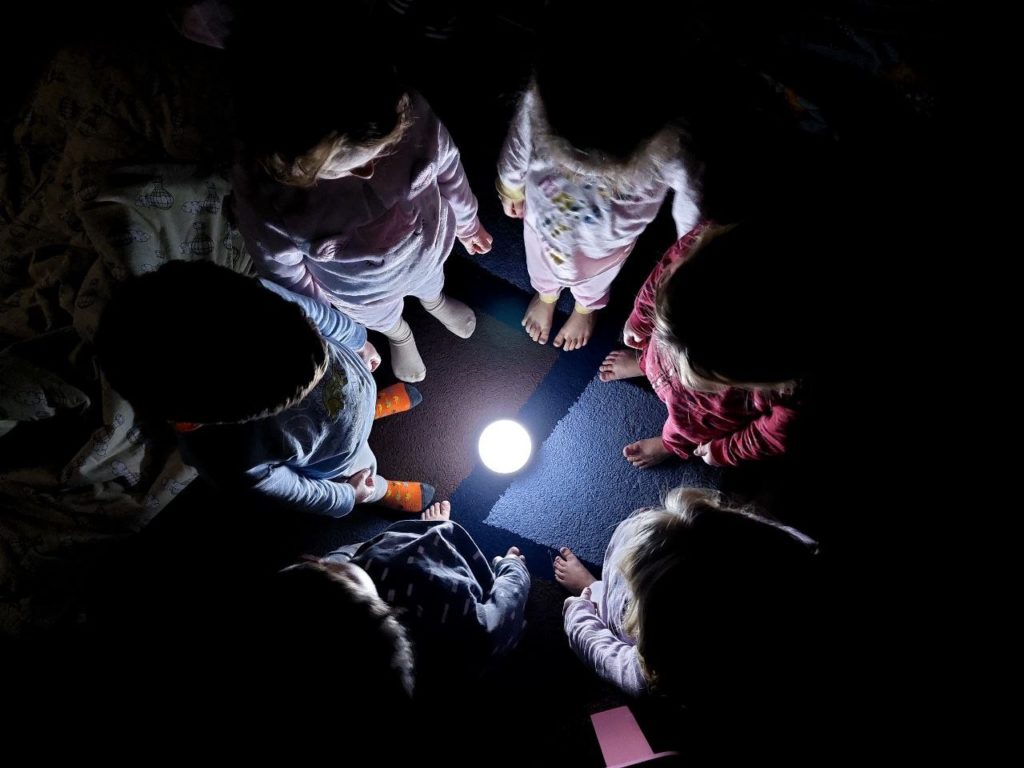
By Veslemøy Maria Svartdal
“Good evening, I have no light.”
“Good evening, in Dnipropetrovsk we haven’t had light for eight hours.”
“Good evening, we haven’t had light for nine hours.”
Every Thursday at 19:00 o’clock, kindergarten teachers from all over Ukraine meet up to speak with each other over Zoom. The platform is EWC’s “Let’s Talk About Kindergarten” – a weekly online meeting that aims to support pre-school teachers and help them maintain and learn from a professional network of colleagues.
In the early morning hours 28th of November, Russian bombers attacked power plants and supply lines all over the country. The result was a million people in various parts of Ukraine experiencing power outages with temperatures below zero degrees Celsius.
At the online Zoom meeting, the faces of several participants were barely visible in the spare light of candles and battery-driven torches.
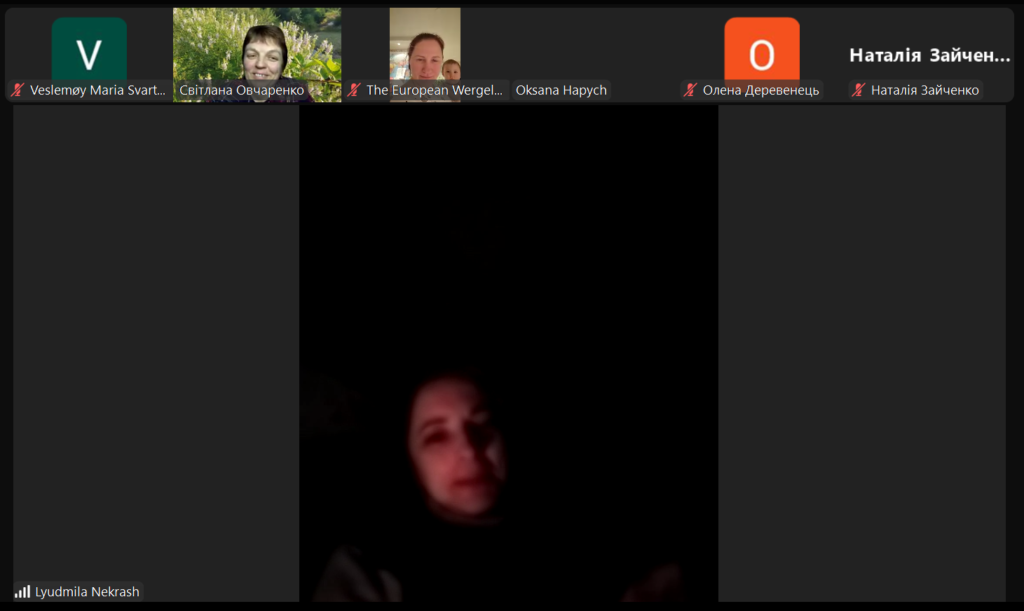
“I don’t have power as you see, but I have candlelight, tea and a warm blanket, and I can enjoy the warmth of your company,” says Oksana, one of the participants.
“What Could We Do to Support Them?”
For EWC, working with kindergartens was a new experience. The first blended course aimed at pre-school teachers was launched in 2022, with two others following the year after. Blended courses offers both online courses and personal training in smaller groups on digital platforms.
“We had so many plans for what we were going to do with the pre-school component, but then the war broke out, and we were unsure what to do. Looking back at what happened, it actually looks like we managed to do a lot more than we previously thought,” says Marta Melnykevych-Chorna, senior advisor at EWC and project manager for the centre’s pre-school programme in Ukraine.
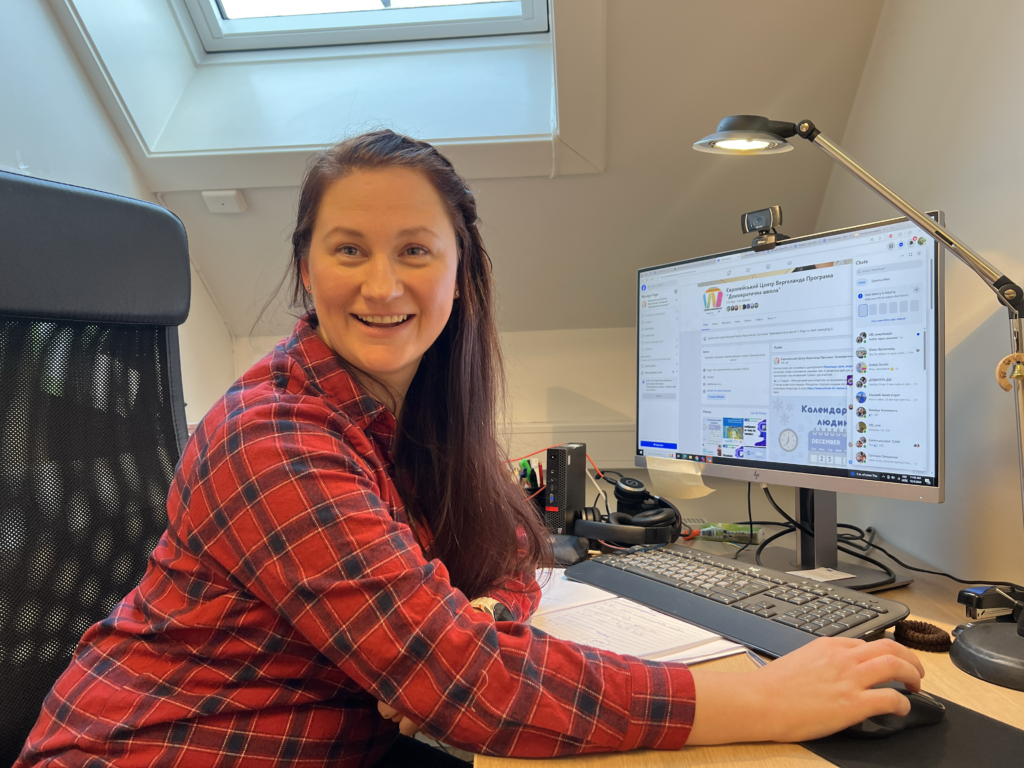
“Pre-school teachers were a new territory for us. We have been working with schoolteachers for a long time in Ukraine and many other countries. We know what their expectations are, but with this new group we didn’t know what their interests or needs were. We were building step by step, inventing as we were going, and listening to the teachers’ needs. What could we do to support them?”
The courses are developed and conducted by a network of EWC trainers stationed in Ukraine, eleven of which are pre-school experts.
The first course for pre-school teachers was designed as a basic course that would help them understand the philosophy of the EWC. There the importance of children being consulted and listened to in things regarding them is underlined. Due to the full-scale invasion, a module concerned with psychology and how to deal with trauma was added as well.
In order to design the two other courses, the team in Ukraine came to Oslo from Kyiv for a study visit in the summer of 2023. They visited several kindergartens in order to get inspiration and a professional boost.
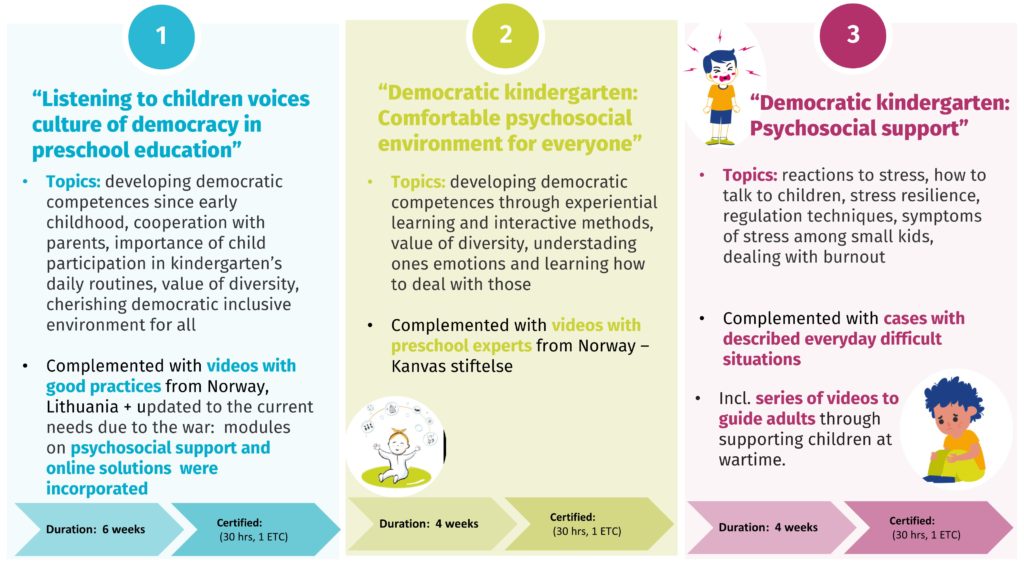
War Games and Mock Funerals
The second and third courses taught participants how to regulate their emotions, how to talk to children about the war, and how to deal with burnout. Some teachers were surprised that they had to take care of their own psychological conditions. Marta suspects it might be a cultural thing, as women in Ukraine are brought up to put everyone’s needs above their own.
“As a pre-school teacher you are meeting children who may be going through many things. You take them to the bomb shelter, and you need to explain what is going on. We also taught them how you need to regulate yourself first, in order to help the small ones.”
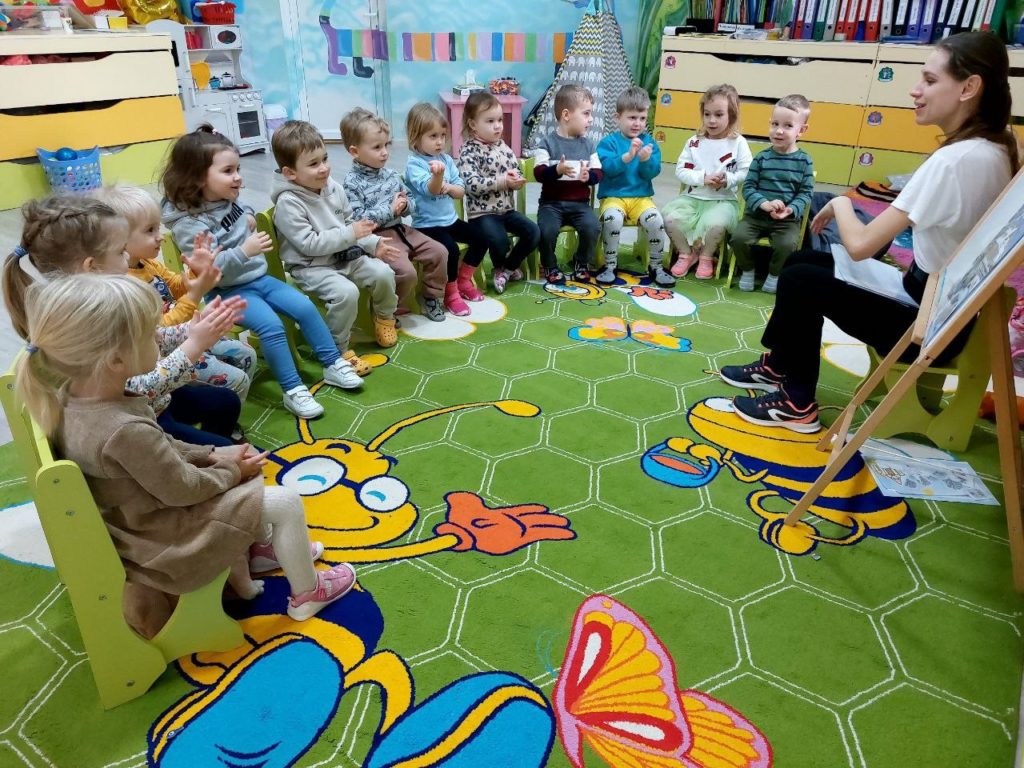
The course developers were given advice from psychologists on how the teachers should talk with children about the war. Children would come to kindergarten plagued by nightmares or wanting to play war games and perform mock funerals for Vladimir Putin. How should a pre-school teacher deal with such situations? Should they be left alone to express their emotions the way they wish?
Read also: Kindergarten as an oasis of safety in Kyiv
“Children are reflecting what they see,” says Marta. “We are teaching them the “free play” model and how that is essential for learning. Through play you can learn so much, how to socialize, how to talk to your peers, how to talk to adults, how to share what’s on your mind, and how to be a small individual navigating though kindergarten.”
Since the start of the pre-school project in 2022, 9 000 pre-school teachers applied to attend the courses.
“Because of all the missile strikes and power cuts, we couldn’t schedule courses based on a calendar. We were working ad-hoc, thinking; “is it a good time now? Yes? Then let’s try to do it.” We ended up selecting 5700 participants for the courses,” Marta recalls.
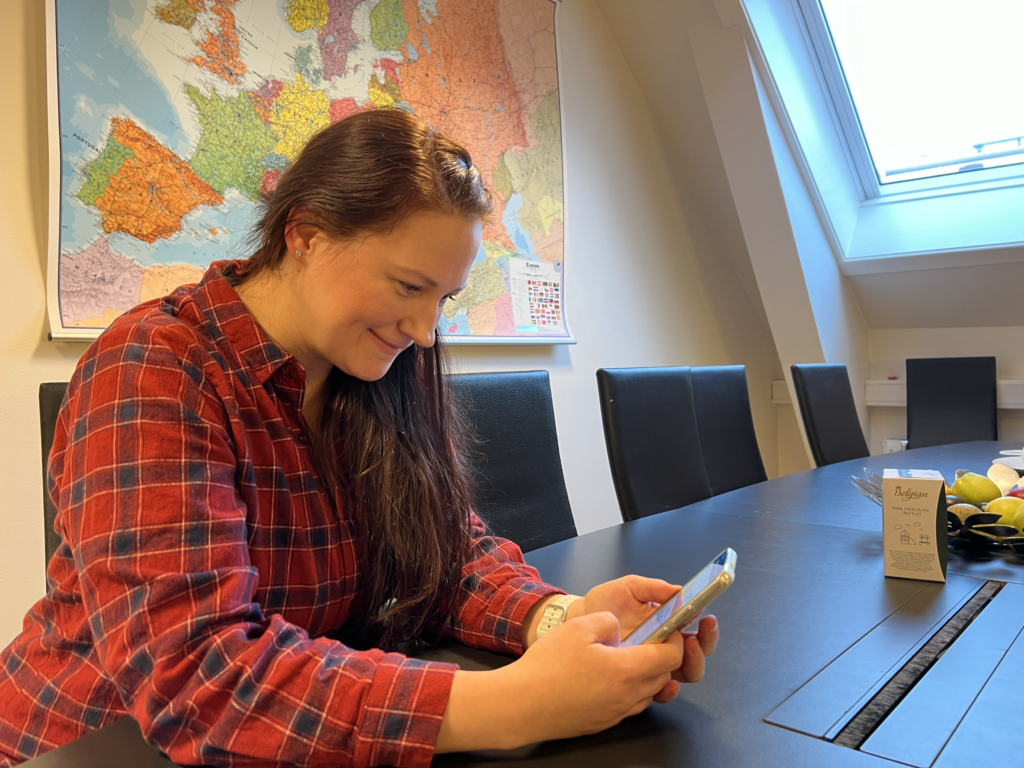
«We Have to Stay in this Difficulty Together»
“We were afraid that people wouldn’t be ready for the courses. Maybe they didn’t have enough strength, time or motivation to learn something new. But they really wanted to do something else. People need to come together as human beings. We have to stay in this difficulty together,” says Marta.
According to numbers from the Ukrainian Ministry of Education and Science 3,428 educational facilities have been damaged, and 365 completely destroyed since the full-scale invasion. Such facilities are regular targets for aerial bombardment, and Ukrainian children have been forced to getting used to sheltering in basements, losing electricity, staying home due to a lack of bomb shelters, or leaving their home with their families all together.
For many of the EWC course participants, they see their pupils only online. Many have been scattered all around the world.
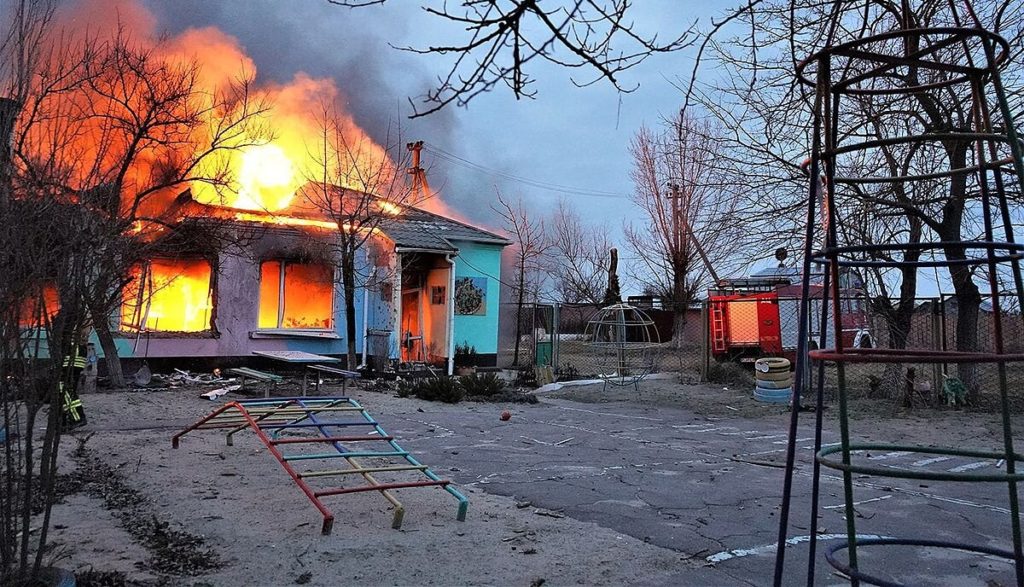
Since the first course for pre-school teachers was launched, 3300 participants have completed the courses and received certificates. That makes 58 % of all the ones signed up for the courses.
But Marta and her colleagues did not want to lose touch with their newly minted network of kindergarten teachers.
“We were thinking how we wanted to keep this connection to the pre-school teachers. Usually we would organize these big conferences. That is not possible in Ukraine anymore, so we tried to find other solutions, and decided on online meetings. We wanted to test it out and invited the alumni. The first meeting took place in May 2023,” Marta remembers.
In order to offer an exclusive possibility to the alumni of the courses, and to build a safe space where everyone felt confident to express themselves, none of the meetings are recorded. In addition to the weekly meetings, alumni are given access to a Telegram channel where they talk to each other, share ideas, suggest topics for the next meetings, or vote on what topics interest them more.
Previous topics have included cooperation with parents, conflicts in kindergarten, music and singing in preschool teaching, and how to create an environment for learning through play.
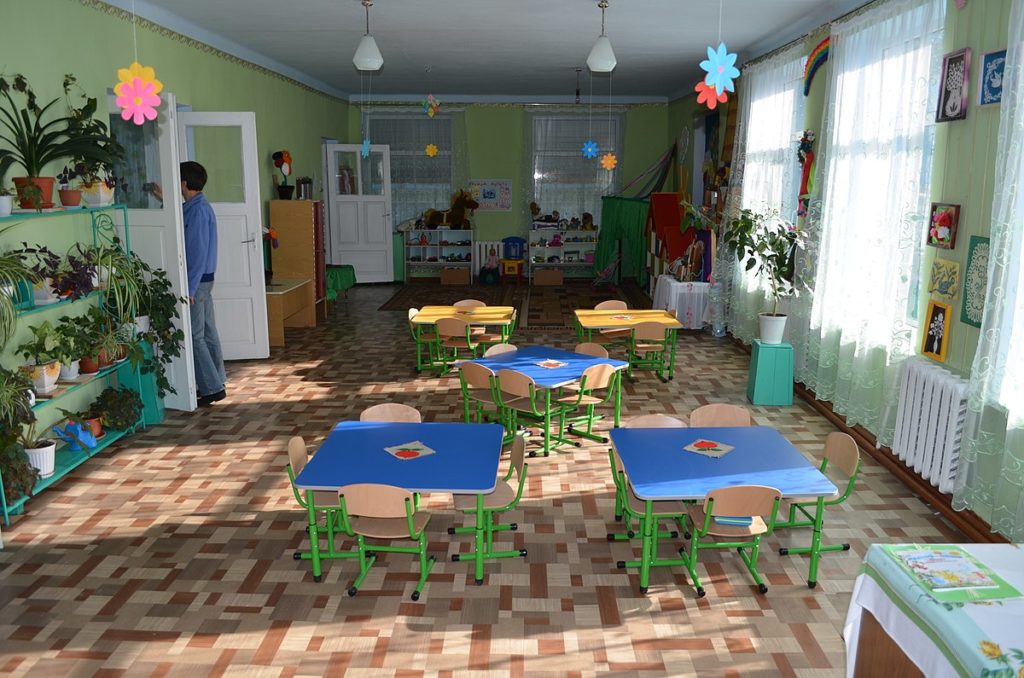
“It Was Very Difficult Not to Cry”
For many participants, the weekly meetings are their place of strength, and a place to charge their batteries. When you come there every time, you see the familiar faces, and they become your friends in the end.
The meetings are led by the same EWC trainers that run the courses, and each meeting concerns itself with a topic relevant for the kindergarten teachers.
Read also: Learning during Extreme Adversity
The trainers never know how many pre-school teachers will show up every time. Sometimes it is 30, other times 60. All in all, EWC has facilitated 32 meetings with eight trainers and 813 participants involved.
“I remember in the beginning of these meetings it was very difficult not to cry, recalls Marta. “People were saying: “Now the kindergarten in Eastern Ukraine is closed and all the children are gone, and we are only meeting on chat.” Then the participants from Western Ukraine were saying: “Please, don’t worry. I can assure you your children are safe. They are here with us. They remember you. They are talking a lot about you and miss you.” It was really emotional.”
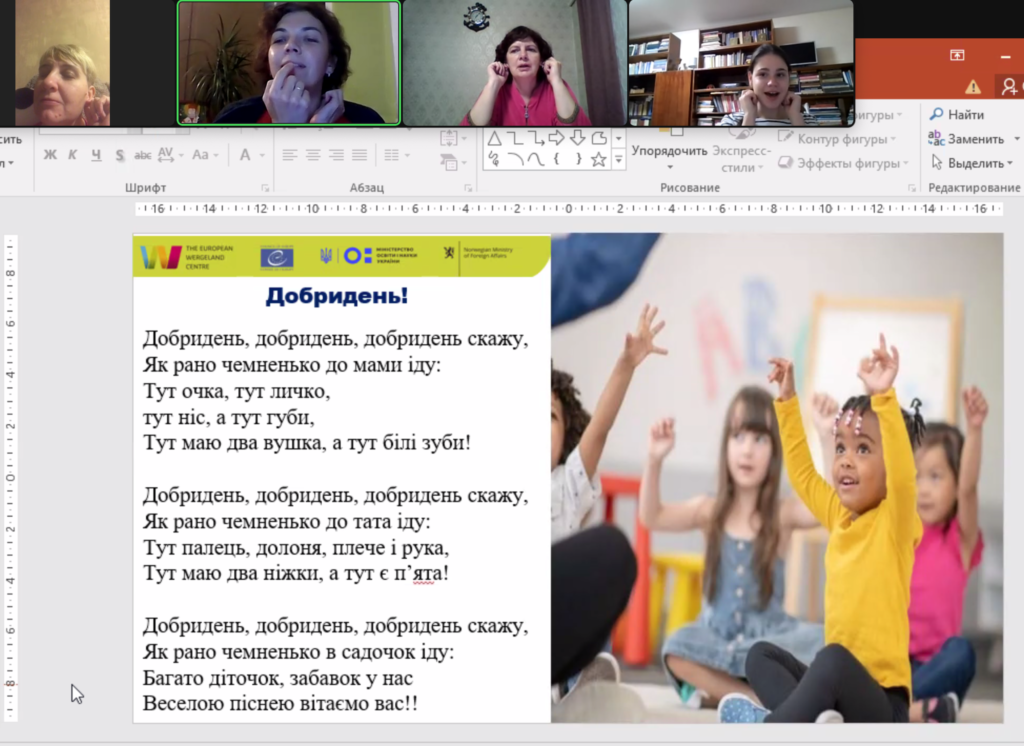
A topic relevant to pre-school teachers in times of war is how to deal with loss. How do you talk to a child who has just lost someone dear to them?
Read also: Supporting children at wartime: Tips from a psychologist
“This is a difficult topic, and it concerns almost every family at the moment in Ukraine, unfortunately, says Marta. “One of the teachers told us about a boy in her kindergarten that had lost his father, and that the Russian authorities refused to hand over his body. What is the teacher’s part in this? The meeting was facilitated by psychologists that could give her specific advice. Teachers from other places said that they had experienced similar situations, and shared how they had approached it. In this safe community, they are there to support each other, to continue developing professionally and contribute to improving your local community.”
Due to the success of the pre-school project, Marta was looking to expand the programme and asked her colleagues for ideas. Perhaps people wanted to meet face to face. However, after three years of full-scale war, the participants were no longer considering this a possibility. For many it would be too difficult and risky.
“We just focus on the moment, and they are happy just to have these 90 minutes together,” smiles Marta.
A fourth course will be launched in 2025. The programme is financed by the Nansen Support Programme for Ukraine managed by NORAD.